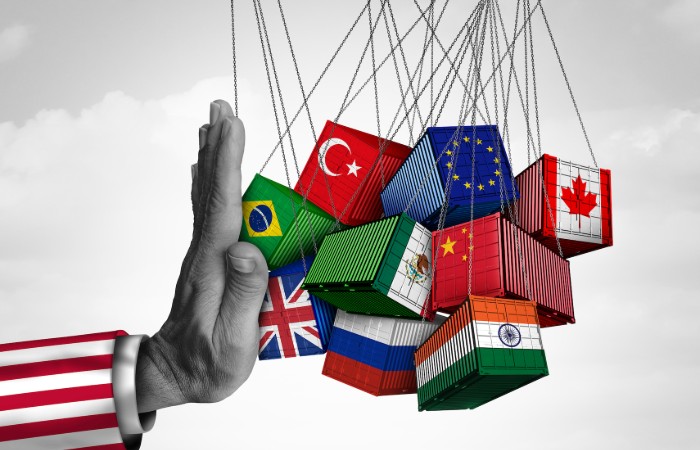Trump tariffs bring concern for UK supply chain, pharmacies and patients
In News
Follow this topic
Bookmark
Record learning outcomes
Concerns are intensifying that US president Donald Trump’s impending “major” tariffs on imported pharmaceuticals into the US will hit the availability of medicines globally and heap further disruption on the UK supply chain.
Trump’s threat to end the exemption on tariffs on pharmaceuticals, largely brought about by a 1995 World Trade Organisation deal, has caused consternation in Westminster and within pharmacy, and generated serious implications for community pharmacies and patients in the UK.
The National Pharmacy Association’s director of corporate affairs Gareth Jones today told Independent Community Pharmacist Trump’s announcement has “caused a degree of uncertainty for the UK medicines supply chain, which is complex and dependent on many international factors, including events in the US”.
“Exactly how this will pan out for patients at UK pharmacies is as yet unclear,” Jones said. “Community pharmacy teams in this country will continue to help patients access medicines safely and promptly, whatever reshaping of the global supply system there may ultimately be.
“If there are unintended consequences, we and our patients will be at the sharp end, facing the reality on the ground of decisions taken far away.”
Streeting: The UK faces extremely turbulent situation
Health secretary Wes Streeting told Sky News this week the UK, which he insisted was used to facing “issues with medicines production and supply internationally”, was entering “an extremely turbulent situation” following Trump’s announcement.
“As ever in terms of medicines, there's a number of factors at play,” Mr Streeting said. “There have been challenges in terms of manufacturing, challenges in terms of distribution, and if we start to see tariffs kicking in, that's another layer of challenge, but we watch this situation extremely closely.
“We work on a daily basis to make sure that we have the medicine supply this country needs.”
Pharmacies have spent years struggling to source a variety of medicines, many of them life-saving treatments, and the prospect of pharmaceutical tariffs will have exacerbated their anxieties about supply in the UK.
“We are constantly watching and acting on this situation to try and get medicines into the country, to make sure we've got availability, to show some flexibility in terms of how medicines are dispensed, to deal with shortages,” Mr Streeting said.
“But whether it is medicines, whether it is parts for manufacturing, whether it is…the ability of businesses in this country to turn a profit, this is an extremely turbulent situation.”
Scottish Lib Dem MP: Tariffs could have life-threatening consequences for patients
Last year, a report by the Nuffield Trust said numerous factors were driving shortages, such as fragile supply chains, wars, the Covid pandemic, a tightly competitive market for cheap, generic medicines and Brexit.
Scottish Liberal Democrat MP Wendy Chamberlain warned Mr Streeting and Scotland’s health secretary Neil Gray that tariffs could have life-threatening consequences for patients in the UK.
She insisted many of her constituents in North-East Fife have struggled to get hold of ADHD medicines and “experienced inconsistent treatment or outright refusal of treatment as a result” of shortages.
“If the tariffs impact medication supplies even more widely, it will undoubtedly lead to many more people experiencing inadequate treatment,” Ms Chamberlain said.
“This is simply unacceptable and could be life-threatening. I urge both governments to do all they can to ensure that people across the UK do not suffer as a result of Trump’s tariffs.”
The Association of the British Pharmaceutical Industry told ICP it was unable to comment “on any speculation around tariffs for the moment”.

